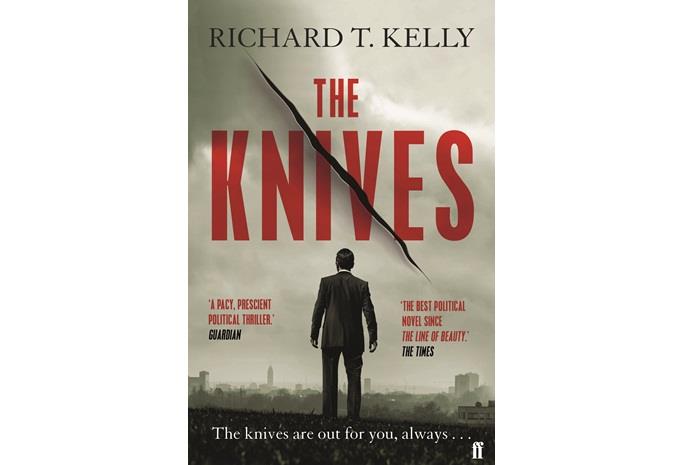There is no shortage of security challenges -- terrorism, radicalism, illegal
immigration (and the backlash it causes) -- for modern nations, particularly in
the West. Now imagine you had the responsibility to tackle these. How effective
could you be against a backdrop of budgetary cutbacks, political intrigue and a
sensationalist media ready to pounce on any lapse?
In the hot seat as Home Secretary, British soldier-turned-Conservative
politician David Blaylock discovers being tough himself is not enough, his
ministerial colleagues -- who include two of Indian-origin -- and his
bureaucrats can be as devious and covert as his adversaries, whatever he does or
doesn't will invite criticism and there are no easy or evident choices. And his
fierce temper that is never below the surface isn't really helpful.
In his third novel, author Richard T. Kelly serves up an engrossing but
portentous tale of modern security challenges in Britain and the political
considerations and costs of tackling them.
Opening with a interlude from the Bosnian war, which brought Islamist
fundamentalism into Europe with a vengeance and where peacekeeper Blaylock
discovers the limitations of armed force, it begins formally 17 years down the
line in 2010 when he has abandoned his uniform for a politician's dark suit.
Entrusted with handling one of the toughest government jobs in a
terrorism-menaced milieu, he finds that army life, while dangerous, was better
supported. As he thinks one morning that whenever he said anything to his
colleagues, "they smiled and nodded, as if they would follow him into the thick
of any fight. Somehow, though, whenever he glanced back over his shoulder, he
didn't see them there".
In course of the next few months, we see our protagonist trying to avoid
political pitfalls like being seen as a leadership challenger, fending off
ambitious colleagues or subordinates, seeking to win over an obdurate
bureaucracy and police miffed over budget cuts, and braving the press which
would rather focus on his peccadilloes.
At the same time, Blaylock has to prevent any more terrorist outrages, move
forward his desired proposal for a national identity card, which has drawn
adverse reaction from various sections, and take flak for "normal" crimes caused
by laxity/shortage of law enforcement personnel. Then, to his dismay, the
illegal immigration figures are still unacceptably high despite all action as an
independent report notes.
Alongside he has to rule on extradition and refugee matters, especially those
that have gained wide media coverage, field all sorts of demands from the
Americans and identify moderates who can counter radicalism -- not only of the
Islamist sort.
Adding to the complications are his relations with his ex-wife and children --
as she dashes hope of getting back again by disclosing a new love, while
Blaylock suspects his boy is linked with a group of anarchist protesters. Then
someone close to him is leaking information to media.
It is an uphill fight for someone who is not naturally a part of the
establishment, can't keep his temper in check or surely identify whom he can
trust or not.
And as betrayals and setbacks, both personal and political, amass and his temper
surges, there can only be one outcome -- and it is triggered by what happens
around Christmas when Blaylock is not able to meet his children to give them his
gifts. But there are still twists ahead as the story comes to its shocking
climax.
While Kelly seeks to disclaim his story is based any real circumstances, he does
note that "it reflects some matters of public interest in the time it was
written" and he has drawn on conversations with politicians, bureaucrats and
other stakeholders described here to lend it greater verisimilitude.
Accordingly its pulsating action, suspense and drama is complemented by the
political gambits and deal-making and administrative foot-dragging and cost
calculations to give a rare, real -- but not very comforting -- feel of how
modern governments operate and face their challenges.
An unparalleled political thriller with a flawed hero, it is a much better
representative of its genre than the other sensationalised and over-the-top
stuff we are accustomed too.


